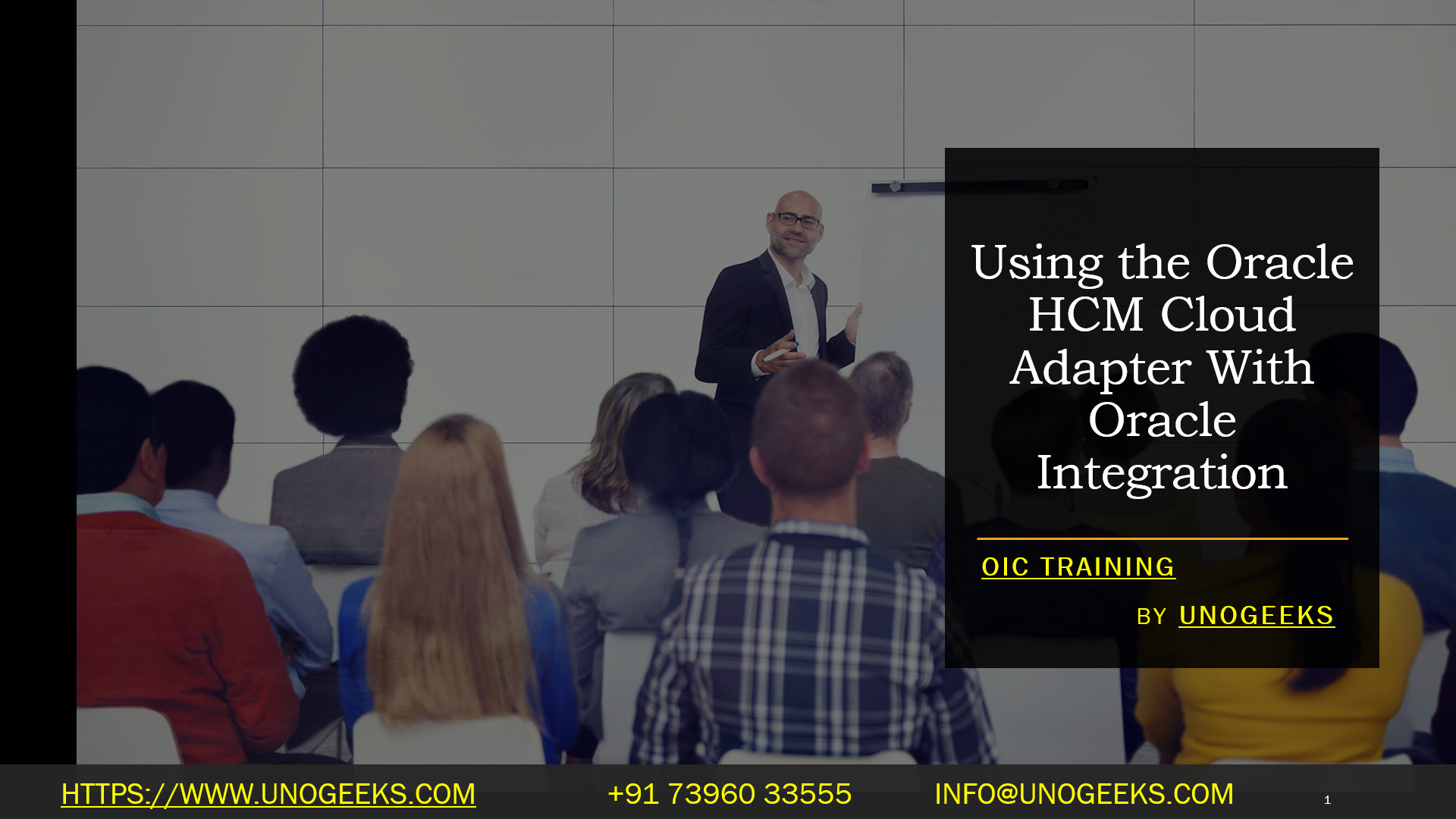Using the Oracle HCM Cloud Adapter With Oracle Integration
The Oracle HCM (Human Capital Management) Cloud Adapter is a specific component that facilitates integration with Oracle HCM Cloud applications. When combined with Oracle Integration, you can create connections that allow you to orchestrate integrations with various applications, perform data mapping, and much more.
Here’s a general step-by-step guide on how you might use the Oracle HCM Cloud Adapter with Oracle Integration:
1. Access the Oracle Integration Console
Access the Oracle Integration console where you can manage your integrations, connections, and monitor running instances.
2. Create a Connection
Create a connection using the Oracle HCM Cloud Adapter.
- Name and Description: Provide a name and an optional description for the connection.
- Connection Role: Select the appropriate role (e.g., trigger, invoke) for this connection.
- Connection Type: Choose Oracle HCM Cloud Adapter from the available connection types.
- Connection Properties: Configure the connection properties like WSDL URL, Security Policy, Credentials, and other specifics related to your Oracle HCM Cloud instance.
3. Test the Connection
Once you’ve configured the connection, you should test it to ensure that everything is set up correctly.
4. Create an Integration
Now, you can create an integration by orchestrating the connections.
- Select the integration pattern that suits your requirement.
- Add the connections that you want to orchestrate, such as Oracle HCM Cloud Adapter connection and other connections necessary for your use case.
- Map the data between connections as required. This might involve defining transformations and mapping fields from the source to the target system.
- Define the flow of data and logic as required by your integration scenario.
5. Activate the Integration
After designing the integration, activate it. This will make it ready for executing the integration flows.
6. Monitor and Manage the Integration
Once the integration is running, you can monitor its performance, analyze errors, and manage instances through the Oracle Integration Console.
7. Security Considerations
Ensure that all security considerations are addressed, including proper authentication and authorization, secure transmission of data, etc.
Oracle Integration Cloud (OIC) Training Demo Day 1
Conclusion:
Unogeeks is the No.1 Training Institute for OIC. Anyone Disagree? Please drop in a comment
Please check our Oracle Integration Cloud Training Details here OIC Training
You can check out our other latest blogs on Oracle Integration Cloud in this OIC Blogs

———————————-
For Training inquiries:
Call/Whatsapp: +91 73960 33555
Mail us at: info@unogeeks.com
Our Website ➜ https://unogeeks.com
Follow us:
Instagram: https://www.instagram.com/unogeeks
Facebook: https://www.facebook.com/UnogeeksSoftwareTrainingInstitute
Twitter: https://twitter.com/unogeeks
